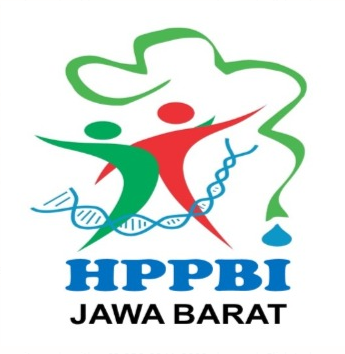Green Consumerism in Environmental Learning: 7th-grade Students Pro-Environmental Behavior in Science Subject
Abstract
Science education in the 21st century including biology learning at the level of Junior High School requires a more contextual implementation. Environmental learning topics such as green consumerism is a contextual topic in biology learning. Students must have high Pro-Environmental Behavior (PEB) to participate in protecting the environment. The purpose of this study was to measure the PEB of students at the 7th-grade level. The research method used descriptive with survey data collection techniques. The study was conducted in November-December 2018 at State Junior High School 1 South Tambun, West Java, Indonesia. A total sample of 135 students in 7th grade was selected by simple random sampling. The results showed there were six PEB indicators based on Green Consumerism that were Energy Conservation (86.37), Transportation (56.67), Waste Avoidance (53.04), Daily Consumption (64.44), Recycling (58.89), Social Behavior (60.54). Among the six indicators, only energy conservation was categorized as very high, while the others are categorized as moderate. This study concluded that PEB students must be improved by various models, methods, and media in biology learning.
Keywords: Environmental learning, green consumerism, pro-environmental behavior
Keywords
References
Ahmad, T. B. T., & Nordin, M. S. (2014). University students subjective knowledge of green computing and pro-environmental behavior. International Education Studies, 7(2), 6474. https://doi.org/10.5539/ies.v7n2p64
Aina, J. K., & Philip, Y. J. (2013). Imperative of Environment in Science Learning. Open Science Journal of Education, 1(1), 1-6.
Amaral, J. A. A. D., & Santos, R. J. R. L. D. (2018). Combining project-based learning and community-based research in a research methodology course: The lessons learned. International Journal of Instruction, 11(1), 4760.
Avan, C., Aydinli, B., Bakar, F., & Alboga, Y. (2011). Preparing Attitude Scale to Define Students Attitudes about Environment, Recycling, Plastic and Plastic Waste. International Electronic Journal of Environmental Education, 1(3), 179191.
Baytar, F., & Ashdown, S. P. (2013). Using video as a storytelling medium to influence textile and clothing students environmental knowledge and attitudes. International Journal of Fashion Design, Technology and Education, 7(1), 3141. https://doi.org/10.1080/17543266.2013.864339
Buzov, I. (2014). Social Network Sites as Area for Students Pro-environmental Activities. Procedia - Social and Behavioral Sciences, 152, 12331236. https://doi.org/10.1016/j.sbspro.2014.09.304
Chander, P., & Muthukrishnan, S. (2015). Green consumerism and pollution control. Journal of Economic Behavior and Organization, 114, 2735. https://doi.org/10.1016/j.jebo.2015.02.013
Derevenskaia, O. (2014). Active Learning Methods in Environmental Education of Students. Procedia - Social and Behavioral Sciences, 131, 101104. https://doi.org/10.1016/j.sbspro.2014.04.086
Esa, N. (2010). Environmental knowledge, attitude and practices of student teachers. International Research in Geographical and Environmental Education, 19(1), 3950. https://doi.org/10.1080/10382040903545534
Fitriani, U., Adisyahputra, A., & Komala, R. (2018). Eco-friendly website development in biology learning based on project activities on environmental pollution. Biosfer: Jurnal Pendidikan Biologi, 11(1), 3246. https://doi.org/10.21009/biosferjpb.11-1.4
Hadzigeorgiou, Y. & Skoumios, M. (2013). The development of environmental awareness through school science: Problems and possibilities. International Journal of Environmental and Science Education, 8(3), 405-426. https://doi.org/10.12973/ijese.2013.212a
Hyun, J., Ediger, R., & Lee, D. (2017). Students Satisfaction on Their Learning Process in Active Learning and Traditional Classrooms. International Journal of Teaching, 29(1), 108118. Retrieved from http://www.isetl.org/ijtlhe/
Jewpanich, C., & Piriyasurawong, P. (2015). Project-Based Learning Using Discussion and Lesson-Learned Methods via Social Media Model for Enhancing Problem Solving Skills. International Education Studies, 8(6), 2431. https://doi.org/10.5539/ies.v8n6p24
José Vinagre DÃaz, J., Richard Wilby, M., & Belén RodrÃguez González, A. (2013). Setting up GHG-based energy efficiency targets in buildings: The Ecolabel. Energy Policy, 59(2013), 633642. https://doi.org/10.1016/j.enpol.2013.04.021
Kaiser, F. G., & Wilson, M. (2004). Goal-directed conservation behavior: The specific composition of a general performance. Personality and Individual Differences, 36(7), 15311544. https://doi.org/10.1016/j.paid.2003.06.003
Kim, M. S., & Stepchenkova, S. (2019). Altruistic values and environmental knowledge as triggers of pro-environmental behavior among tourists. Current Issues in Tourism, 16. https://doi.org/10.1080/13683500.2019.1628188
Krettenauer, T. (2017). Pro-Environmental Behavior and Adolescent Moral Development. Journal of Research on Adolescence, 27(3), 581593. https://doi.org/10.1111/jora.12300
Lane, D., Jones, R., Mills, D., Wobus, C., Ready, R. C., Buddemeier, R. W., Hosterman, H. (2015). Climate change impacts on freshwater fish, coral reefs, and related ecosystem services in the United States. Climatic Change, 131(1), 143157. https://doi.org/10.1007/s10584-014-1107-2
Lavelle, M. J., Rau, H., & Fahy, F. (2015). Different shades of green? Unpacking habitual and occasional pro-environmental behavior. Global Environmental Change, 35, 368378. https://doi.org/10.1016/j.gloenvcha.2015.09.021
Lee, P. S., Sung, Y. H., Wu, C. C., Ho, L. C., & Chiou, W. B. (2018). Using Episodic Future Thinking to Pre-Experience Climate Change Increases Pro-Environmental Behavior. Environment and Behavior, 1391651879059. https://doi.org/10.1177/0013916518790590
Mahmud, S. N. D., & Osman, K. (2010). The determinants of recycling intention behavior among the Malaysian school students: An application of Theory of Planned Behaviour. Procedia - Social and Behavioral Sciences, 9, 119124. https://doi.org/10.1016/j.sbspro.2010.12.123
Matthes, J., & Wonneberger, A. (2014). The skeptical green consumer revisited: Testing the relationship between green consumerism and skepticism toward advertising. Journal of Advertising, 43(2), 115127. https://doi.org/10.1080/00913367.2013.834804
McCarthy, B., & Liu, H. B. (2017). Food waste and the green†consumer. Australasian Marketing Journal, 25(2), 126132. https://doi.org/10.1016/j.ausmj.2017.04.007
McGuire, N. M. (2015). Environmental education and behavioral change: An identity-based environmental education model. International Journal of Environmental and Science Education, 10(5), 695715. https://doi.org/10.12973/ijese.2015.261a
Musyaddad, A., & Suyanto, S. (2019). Evoking the four dimensions of student knowledge in ecosystem: effectiveness of real object, web, and blended learning. Biosfer: Jurnal Pendidikan Biologi, 12(2).
Nwankwoala, H. N. L. (2015). Causes of Climate and Environmental Changes: The Need for Environmental-Friendly Education Policy in Nigeria. Journal of Education and Practice, 6(30), 224234.
Okur Berberoglu, E., Ozdilek, H. G., & Yalcin Ozdilek, S. (2014). The Short Term Effectiveness of an Outdoor Environmental Education on Environmental Awareness and Sensitivity of In-service. International Electronic Journal of Environmental Education, 5(1), 120. https://doi.org/10.18497/iejee-green.03640
Olsson, M., & Kjällstrand, J. (2006). Low emissions from wood burning in an ecolabelled residential boiler. Atmospheric Environment, 40(6), 11481158. https://doi.org/10.1016/j.atmosenv.2005.11.008
Otto, S., Neaman, A., Richards, B., & Marió, A. (2016). Explaining the Ambiguous Relations Between Income, Environmental Knowledge, and Environmentally Significant Behavior. Society and Natural Resources, 29(5), 628632. https://doi.org/10.1080/08941920.2015.1037410
Pagiaslis, A., & Krontalis, A. K. (2014). Green Consumption Behavior Antecedents: Environmental Concern, Knowledge, and Beliefs. Psychology & Marketing, 31(5), 335348. https://doi.org/10.1002/mar.20698
Rahman, M. M. (2018). Exploring science teachers perception of classroom assessment in secondary schools of Bangladesh. European Journal of Education Studies, 4(9), 139-160. https://www.doi.org/10.5281/zenodo.1296835
Schmitt, M. T., Aknin, L. B., Axsen, J., & Shwom, R. L. (2018). Unpacking the Relationships Between Pro-environmental Behavior, Life Satisfaction, and Perceived Ecological Threat. Ecological Economics, 143, 130140. https://doi.org/10.1016/j.ecolecon.2017.07.007
Seebauer, S., Fleiß, J., & Schweighart, M. (2017). A Household Is Not a Person: Consistency of Pro-Environmental Behavior in Adult Couples and the Accuracy of Proxy-Reports. Environment and Behavior, 49(6), 603637. https://doi.org/10.1177/0013916516663796
Sheng, G., Xie, F., Gong, S., & Pan, H. (2019). The role of cultural values in green purchasing intention: Empirical evidence from Chinese consumers. International Journal of Consumer Studies, 43(3), 315326. https://doi.org/10.1111/ijcs.12513
Shin, Y. H., Im, J., Jung, S. E., & Severt, K. (2017). Consumers Willingness to Patronize Locally Sourced Restaurants : the Impact of Environmental Concern , Environmental Knowledge , and Ecological Behavior. Journal of Hospitality Marketing & Management, 115. https://doi.org/10.1080/19368623.2017.1263821
Song, Q., Li, J., Duan, H., Yu, D., & Wang, Z. (2017). Towards to sustainable energy-efficient city: A case study of Macau. Renewable and Sustainable Energy Reviews, 75(August), 504514. https://doi.org/10.1016/j.rser.2016.11.018
Sudibyo, H., Pradana, Y. S., Budiman, A., & Budhijanto, W. (2017). Municipal Solid Waste Management in Indonesia - A Study about Selection of Proper Solid Waste Reduction Method in D.I. Yogyakarta Province. Energy Procedia, 143, 494499. https://doi.org/10.1016/j.egypro.2017.12.716
Suhendar, S., & Wahyuni, A. (2018). Achievement and response of students at favorite junior high schools in sukabumi on trends in international mathematics and science study (timss) questions. Biosfer: Jurnal Pendidikan Biologi, 11(2), 126133. https://doi.org/10.21009/biosferjpb.v11n2.126-133
Tang, Y., Geng, L., Schultz, P. W., Zhou, K., & Xiang, P. (2017). The effects of mindful learning on pro-environmental behavior: A self-expansion perspective. Consciousness and Cognition, 51, 140148. https://doi.org/10.1016/j.concog.2017.03.005
Uzun, N. (2012). A Sample of Active Learning Application in Science Education: The Thema Cell†with Educational Games. Procedia - Social and Behavioral Sciences, 46, 29322936. https://doi.org/10.1016/j.sbspro.2012.05.592
Vicente-Molina, M. A., Fernández-Sainz, A., & Izagirre-Olaizola, J. (2018). Does gender make a difference in pro-environmental behavior? The case of the Basque Country University students. Journal of Cleaner Production, 176, 8998. https://doi.org/10.1016/j.jclepro.2017.12.079
Wen, W. cheng, & Lu, S. yun. (2013). Marine environmental protection knowledge, attitudes, behaviors, and curricular involvement of Taiwanese primary school students in senior grades. Environmental Education Research, 19(5), 600619. https://doi.org/10.1080/13504622.2012.717219
Weninger, C. (2018). Problematising the notion of authentic school learningâ€: insights from student perspectives on media/literacy education. Research Papers in Education, 33(2), 239254. https://doi.org/10.1080/02671522.2017.1286683
Yedla, S., & Park, H. S. (2017). Eco-industrial networking for sustainable development: review of issues and development strategies. Clean Technologies and Environmental Policy, 19(2), 391402. https://doi.org/10.1007/s10098-016-1224-x
Yue, B., Sheng, G., She, S., & Xu, J. (2020). Impact of Consumer Environmental Responsibility on Green Consumption Behavior in China: The Role of Environmental Concern and Price Sensitivity. Sustainability, 12 (5), 2074. https://doi.org/10.3390/su12052074
Yusof, N., Rahman, S., & Iranmanesh, M. (2016). The environmental practice of resorts and tourist loyalty: the role of environmental knowledge, concern, and behaviour. Anatolia, 27(2), 214226. https://doi.org/10.1080/13032917.2015.1090463
Zandvliet, D. B., & Ormond, C. G. (2014). Environmental Learning as a Unique Context for Science Education. Brazilian Journal of Research in Science Education, 14(2), 279-292.
DOI: 10.55215/jber.v1i1.2633
 Abstract views : 816
Abstract views : 816
Refbacks
- There are currently no refbacks.
Copyright (c) 2020 Journal Of Biology Education Research (JBER)

This work is licensed under a Creative Commons Attribution-NonCommercial-ShareAlike 4.0 International License.









